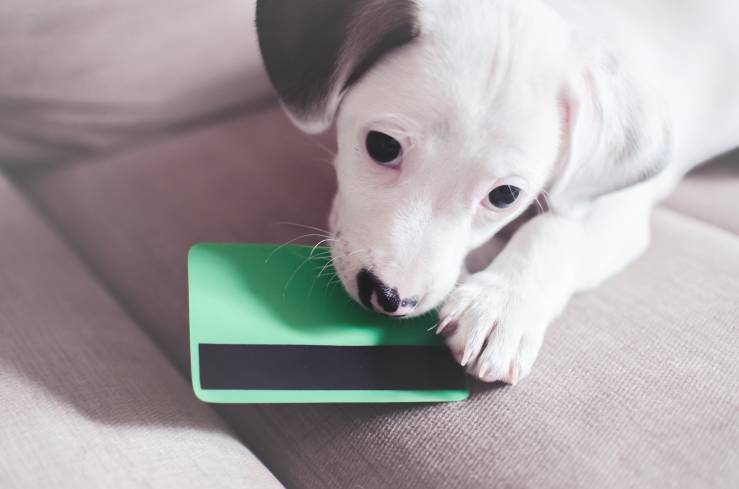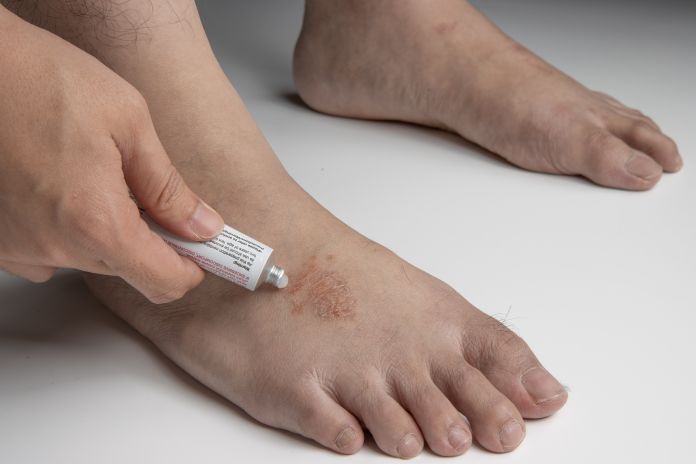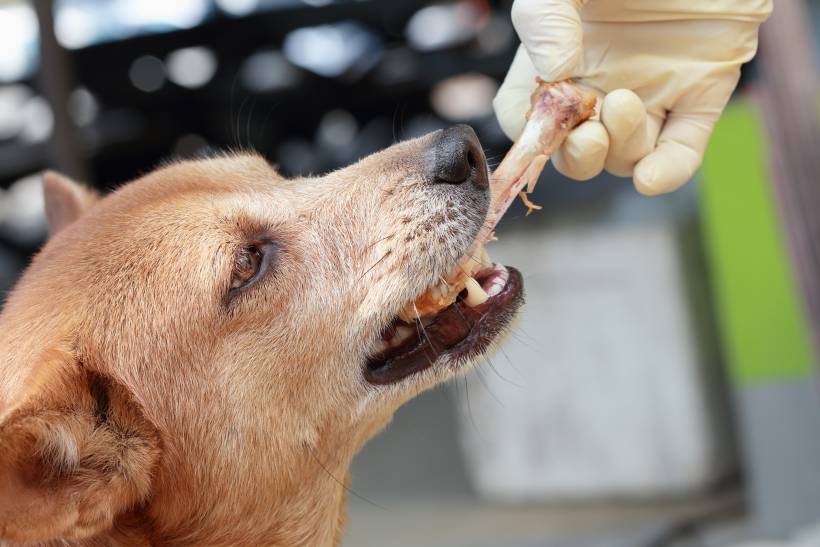Connect with a verified veterinarian in minutes. Licensed vets are available 24/7 to answer your questions. No need to worry about your furry family member.
Credit cards are a part of most people’s lives these days! The cards come in handy when paying for purchasing and can even be used to shop online. But what happens if a dog eats a credit card? Could the credit make the dog sick?
Has your dog eaten a credit card? Are you worried the credit card will make your dog sick? If so, you’ve come to the right place! We understand it can be scary when your dog eats something like this.
We’ve put together some information about credit cards and whether they can make a dog sick. Let’s get started!
What is a Credit Card?
A credit card is a payment card that’s issued to users, who can then use the card to make purchases. The cards are issued by financial institutions, with the understanding that the card user pays the bank back for the purchases they’ve made with the card. Credit cards are usually paid off in monthly installments, making them a handy way to make larger purchases without a large cash layout at one time.
Credit cards are made of plastic and are about 3.37 inches long x 2.125 inches tall. The cards include the name of the financial institution on the front, along with a credit card number and an expiration date. On the back of a credit card, you’ll find a signature bar, a magnetic stripe, and a 3-digit security number.
While credit cards are safe when used correctly, what happens if a dog eats a credit card?
Credit Cards & Dogs
We’ll start by saying a dog eating a credit card is a common problem. Dogs may try to snatch and eat your wallet, or they’ll run off with your credit cards. Your fur baby may be curious about the credit card (or wallet). Or if you happened to splash some steak sauce on the card after using it at a restaurant, then your dog may think the card is food! You can’t blame him! Who doesn’t love the smell of steak?
While this may seem like a funny situation, it can be very dangerous. The problem is that the cards will break up into small, sharp bits if chewed by a dog. A dog can swallow a sharp piece of plastic, which can then become lodged in the throat. This may block the airways and cause your dog to choke.
Another problem is that if the sharp bits of the credit card are swallowed, they could puncture or tear any part of the digestive tract. Another issue is that the plastic could become lodged in the dog’s intestines and create an intestinal blockage. This can be a life-threatening condition if not treated.

Review symptoms, medications & behavior to keep your pets healthy with a Vet Online in just minutes.
Ask a Vet Live NowWhat to Do If Your Dog Has Eaten a Credit Card
We would highly recommend calling the vet right away. Do not induce vomiting, as the sharp plastic pieces could cause damage on their way out. Whether your dog is choking or he seems OK, it’s imperative to call the vet immediately.
Chances are, the vet will ask you to bring your fur baby in to be checked. In some cases, your dog may need emergency surgery to remove the plastic credit card from his system safely.
And remember to call the bank and let them know what’s happened. They will need to issue a new card to replace the one your dog has chewed up.
The good news is that dogs who receive prompt medical care have the best chance of making a full recovery! So, do get your fur baby to the vet ASAP. His life depends on it!
Connect with a verified veterinarian in minutes. Licensed vets are available 24/7 to answer your questions. No need to worry about your furry family member.

Kim
Kim is a talented author, who loves animals especially dogs. She engaged in writing books and articles relating to animals a decade ago. Kim resides in Chicago with her husband and son. The family is the proud owner of a dog and a parrot (Jack and Lily). Kim wanted more than these two pets, but her husband put his foot down... She often visits elementary schools to talk to the kids about what she learned about pets and how they could learn from them.
Review symptoms, medications & behavior to keep your pets healthy with a Vet Online in just minutes.
Ask a Vet Live Now





